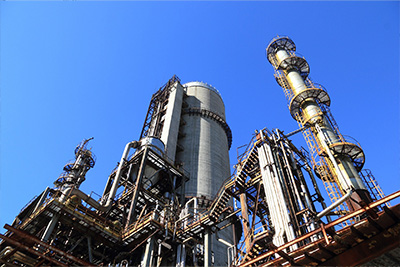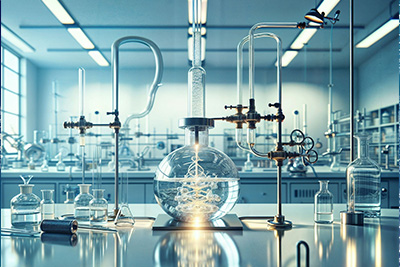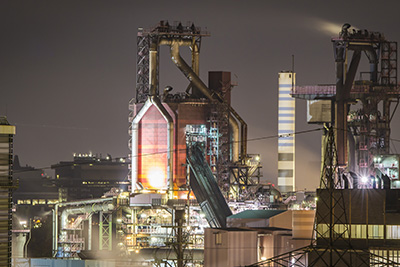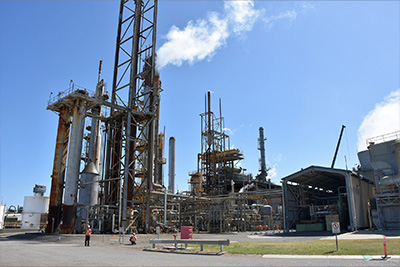-
![Dimethyltin Stabil···]() 2024-11-25 Dimethyltin Stabilizers: A Detailed ···
2024-11-25 Dimethyltin Stabilizers: A Detailed ···Dimethyltin stabilizers serve as crucial additives in various industries, enhancing the durability and performance of materials such as plastics and paints. This guide explores the production processes of dimethyltin compounds, detailing synthesis methods from raw materials like tin and methyl halides. It further examines their applications across sectors including construction, automotive, and electronics, highlighting their role in thermal stabilization and resistance against degradation. The article also discusses environmental considerations and safety measures associated with handling these compounds, providing comprehensive insights for professionals in material science and industrial chemistry.
read more > -
![The Production and···]() 2024-11-25 The Production and Application of Me···
2024-11-25 The Production and Application of Me···Mercaptide tin is widely utilized in modern PVC manufacturing due to its efficacy as a heat stabilizer. This compound prevents discoloration and degradation of PVC during processing and application. The production process involves the reaction between tin compounds and mercaptans, resulting in stable mercaptide tin complexes. These complexes offer superior thermal stability, lubricity, and transparency compared to other stabilizers. Additionally, mercaptide tin enhances the long-term performance of PVC products, making it an indispensable component in various industries, including construction, automotive, and electronics.
read more > -
![Butyltin Compounds···]() 2024-11-25 Butyltin Compounds: Environmental Im···
2024-11-25 Butyltin Compounds: Environmental Im···Butyltin compounds, widely used in various industries, have significant environmental impacts including bioaccumulation and toxicity to aquatic life. This review explores the adverse effects of these compounds on ecosystems and human health. It also highlights sustainable production approaches such as catalytic processes and green chemistry methods aimed at reducing hazardous waste and minimizing environmental footprint. These strategies are crucial for developing more environmentally friendly butyltin products.
read more > -
![Methyltin Compound···]() 2024-11-25 Methyltin Compound Production: Innov···
2024-11-25 Methyltin Compound Production: Innov···Recent advancements in chemical engineering have significantly improved the production of methyltin compounds. These innovations focus on optimizing reaction conditions, enhancing catalyst efficiency, and minimizing waste. Notably, new catalytic processes have been developed, leading to higher yields and purity levels. Additionally, process intensification techniques have been implemented, reducing energy consumption and environmental impact. These improvements not only boost productivity but also ensure safer and more sustainable manufacturing practices.
read more > -
![Octyltin Manufactu···]() 2024-11-25 Octyltin Manufacturing and Quality A···
2024-11-25 Octyltin Manufacturing and Quality A···The article discusses the production and quality control of octyltin compounds, which are crucial additives in the PVC heat stabilization process. These compounds enhance the thermal stability of PVC materials, ensuring their durability and longevity. The manufacturing process involves synthesizing octyltin compounds through precise chemical reactions to achieve the desired properties. Quality assurance measures include rigorous testing to meet industry standards, ensuring the effectiveness and safety of these stabilizers in various applications such as construction, automotive, and packaging industries.
read more > -
![Dimethyltin’s Role···]() 2024-11-25 Dimethyltin’s Role in PVC Stability:···
2024-11-25 Dimethyltin’s Role in PVC Stability:···Dimethyltin plays a crucial role in enhancing the thermal stability of polyvinyl chloride (PVC) during processing and use. This is achieved through various production methods that incorporate dimethyltin stabilizers into PVC formulations. The market trends indicate a growing demand for these stabilizers due to their effectiveness in prolonging the service life of PVC products. As industries seek more durable and long-lasting materials, the utilization of dimethyltin-based stabilizers is expected to rise, reflecting a positive outlook for their market growth.
read more > -
![Mercaptide Tin Pro···]() 2024-11-25 Mercaptide Tin Production: Technical···
2024-11-25 Mercaptide Tin Production: Technical···The production of mercaptide tin involves significant technical innovations aimed at enhancing efficiency and product quality. These advancements include improved synthesis methods and purification techniques that reduce impurities and increase yield. However, environmental considerations remain crucial, as the process can generate hazardous by-products and waste. Effective waste management strategies and the adoption of greener chemical processes are essential to minimize ecological impact. Overall, the integration of innovative technologies with environmental sustainability is key to advancing mercaptide tin production.
read more > -
![Upstream and Downs···]() 2024-11-25 Upstream and Downstream Optimization···
2024-11-25 Upstream and Downstream Optimization···The optimization of butyltin manufacturing processes involves both upstream and downstream improvements. Upstream, strategies focus on enhancing raw material efficiency, optimizing reaction conditions, and improving catalyst performance to increase yield and purity. Downstream, efforts concentrate on efficient separation techniques, such as distillation and extraction, to purify the final product. Additionally, waste reduction and recycling methods are implemented to minimize environmental impact. Overall, these integrated approaches aim to enhance the economic and environmental sustainability of butyltin production.
read more > -
![Advancements in Me···]() 2024-11-25 Advancements in Methyltin Compound S···
2024-11-25 Advancements in Methyltin Compound S···Recent developments in the synthesis of methyltin compounds have significantly improved heat stability, offering promising applications in polymer materials. These advancements involve novel synthetic methods that enhance the thermal resistance of methyltin compounds, making them more effective as heat stabilizers. The improved heat stability extends the lifespan and performance of polymers under high-temperature conditions, thereby broadening their utility in various industries such as electronics and automotive manufacturing. This progress not only addresses the limitations of traditional heat stabilizers but also paves the way for more sustainable and efficient material solutions.
read more >









